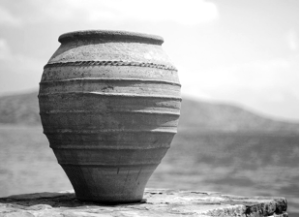Regina Felty's Blog, page 2
October 19, 2021
The Value of Authenticity
This is a guest blog post I wrote for She’s Intentional (Dainty Jewells). You can find the original post HERE.

I’ve been wanting a Coach purse for a while.
Many times, I have found myself browsing their website or slipping into an outlet store to drool over the elegant styles and colors. My eyes inevitably lock on some beauty with gold hardware and buttery-soft leather, and I fall in love all over again (As I said, I’ve done this many times!). My mind drifts off to my closet as I imagine what she (all purses are she to me…) would look like against that linen suit I bought last year or that dress I hope to wear to that conference in a few months.
Until I look at what it would cost me.
And I move on. Every time.
Recently, I found a previously-owned Coach purse on a website that I often shop from and was so excited when I saw how incredibly reasonable the price was and how the listing said it was in excellent condition with no blemishes or defects. It was listed as an “authentic Coach purse, without tags.” Thankfully, there was that little voice in my ear coaxing me to do a quick internet search on how to identify a fake designer bag. I soon discovered that this purse wasn’t the real deal. It was a counterfeit.
Again, I moved on.
People can be counterfeit too.
One of the world’s most famous imposters was Ferdinand Waldo Demara.
Ferdinand spent decades of his life faking his way through impressionable careers–dean of a college, assistant warden of a prison, doctor of psychology, Navy surgeon–all without the credentials or experience. He was a master deceiver. An imposter. A counterfeit.
He fooled people for years, even faced consequences on numerous occasions, before settling into a life of acknowledging who he really was: Ferdinand Waldo Demara–minus all the falsified titles.
Jesus called the scribes and Pharisees hypocrites, exposing them for trying to cover up the ugliness of their hearts and intentions with a deceptive display of a pristine coat of spiritual purity.
“Woe to you, scribes and Pharisees, hypocrites! For you are like whitewashed tombs which indeed appear beautiful outwardly, but inside are full of dead men’s bones and all uncleanness.” (Matthew 23:27, NKJV)
We might be able to fool others, but we will never fool God.
Sadly, we often fear showing others our true self, choosing instead to hide behind a facade because we believe no one wants to see our authentic self with all of our flaws and scars. It may have taken everything we had just to confess them to God, knowing he accepts us just the way we are. But we struggle to believe that anyone else would. And…sometimes, we are right. Not everyone can handle your flaws and scars.
Being authentic means being vulnerable.
You see, authentic people can admit they are flawed. That they make mistakes. They experience joy and freedom that others–who stubbornly try to maintain a false front–lack. Fabricating a perfect, put-together life is exhausting. It drains our physical, mental, and spiritual resources. We have nothing left to offer to our friends, our family, or God. As the scripture above points out, our lives are beautiful to look at but dead inside. We revert to becoming a second-rate replica of the real deal. The internal price we pay for the imitation version of ourselves becomes more than we would have paid to be authentic.
Being authentic means being unique.
And being unique, my friend, is rare. Being unique is appealing and something that we intrinsically crave to become. To feel special. To be exceptional. A rare man or woman in a world full of mundane sameness. But you must be willing to be transparent and to stand out from the crowd.
Do you have the courage to be that lone eagle in a sky full of starlings? Can you be governed by internal core values over following the latest social fad or political mantra?
And that knockoff Coach purse that I almost bought? I could have draped that handbag on my arm and matched it seamlessly with a few classy outfits and many would have never known it was a fake. Only a true connoisseur of designer bags could have spotted the inconsistent symbols and markers that would have identified it as a counterfeit.
And…I would have known too.
I’m willing to wait for that authentic Coach purse–maybe there’s even a Louis Vuitton in my future. Either way, it will mean more, be worth more, and be appreciated for its true value.
Love,
Regina
The post The Value of Authenticity appeared first on .
The Value of Authenticity (Guest Post for Dainty Jewells)
This is a guest blog post I wrote for She’s Intentional (Dainty Jewells). You can find the original post HERE.

I’ve been wanting a Coach purse for a while.
Many times, I have found myself browsing their website or slipping into an outlet store to drool over the elegant styles and colors. My eyes inevitably lock on some beauty with gold hardware and buttery-soft leather, and I fall in love all over again (As I said, I’ve done this many times!). My mind drifts off to my closet as I imagine what she (all purses are she to me…) would look like against that linen suit I bought last year or that dress I hope to wear to that conference in a few months.
Until I look at what it would cost me.
And I move on. Every time.
Recently, I found a previously-owned Coach purse on a website that I often shop from and was so excited when I saw how incredibly reasonable the price was and how the listing said it was in excellent condition with no blemishes or defects. It was listed as an “authentic Coach purse, without tags.” Thankfully, there was that little voice in my ear coaxing me to do a quick internet search on how to identify a fake designer bag. I soon discovered that this purse wasn’t the real deal. It was a counterfeit.
Again, I moved on.
People can be counterfeit too.
One of the world’s most famous imposters was Ferdinand Waldo Demara.
Ferdinand spent decades of his life faking his way through impressionable careers–dean of a college, assistant warden of a prison, doctor of psychology, Navy surgeon–all without the credentials or experience. He was a master deceiver. An imposter. A counterfeit.
He fooled people for years, even faced consequences on numerous occasions, before settling into a life of acknowledging who he really was: Ferdinand Waldo Demara–minus all the falsified titles.
Jesus called the scribes and Pharisees hypocrites, exposing them for trying to cover up the ugliness of their hearts and intentions with a deceptive display of a pristine coat of spiritual purity.
“Woe to you, scribes and Pharisees, hypocrites! For you are like whitewashed tombs which indeed appear beautiful outwardly, but inside are full of dead men’s bones and all uncleanness.” (Matthew 23:27, NKJV)
We might be able to fool others, but we will never fool God.
Sadly, we often fear showing others our true self, choosing instead to hide behind a facade because we believe no one wants to see our authentic self with all of our flaws and scars. It may have taken everything we had just to confess them to God, knowing he accepts us just the way we are. But we struggle to believe that anyone else would. And…sometimes, we are right. Not everyone can handle your flaws and scars.
Being authentic means being vulnerable.
You see, authentic people can admit they are flawed. That they make mistakes. They experience joy and freedom that others–who stubbornly try to maintain a false front–lack. Fabricating a perfect, put-together life is exhausting. It drains our physical, mental, and spiritual resources. We have nothing left to offer to our friends, our family, or God. As the scripture above points out, our lives are beautiful to look at but dead inside. We revert to becoming a second-rate replica of the real deal. The internal price we pay for the imitation version of ourselves becomes more than we would have paid to be authentic.
Being authentic means being unique.
And being unique, my friend, is rare. Being unique is appealing and something that we intrinsically crave to become. To feel special. To be exceptional. A rare man or woman in a world full of mundane sameness. But you must be willing to be transparent and to stand out from the crowd.
Do you have the courage to be that lone eagle in a sky full of starlings? Can you be governed by internal core values over following the latest social fad or political mantra?
And that knockoff Coach purse that I almost bought? I could have draped that handbag on my arm and matched it seamlessly with a few classy outfits and many would have never known it was a fake. Only a true connoisseur of designer bags could have spotted the inconsistent symbols and markers that would have identified it as a counterfeit.
And…I would have known too.
I’m willing to wait for that authentic Coach purse–maybe there’s even a Louis Vuitton in my future. Either way, it will mean more, be worth more, and be appreciated for its true value.
Love,
Regina
The post The Value of Authenticity (Guest Post for Dainty Jewells) appeared first on .
September 20, 2021
One Day at the Well
This is a guest post I wrote for Dainty Jewells about how one Samaritan woman’s encounter with Jesus not only changed her life but also led to the salvation of many of her people.
You can view the original post HERE.

The midday sun scorched the back of her neck as she bent to her task. She worked alone. It had been her fate for years and she accepted it. Even
preferred it that way. Anything to avoid the disdainful glares from the others.
The woman was wary as she watched the man approach.
A Jew.She tugged up the heavy clay pitcher and dumped the water into the vessel at her feet, her eyes darting his way as he settled on a nearby boulder, quietly observing her. His wrinkled tunic and dusty sandals revealed that he spent a great deal of time traveling and was most likely here to rest before moving on.
He probably expects me to draw water for him.
When he finally asked, she was ready. And her reply was bitter.
“How is it that you, being a Jew, ask a drink from me, a Samaritan woman? For Jews have no dealings with Samaritans.”
But Jesus was ready with an answer, too. One that she had not expected. An answer that was destined to change her life.“If you knew the gift of God, and who it is that asks you for a drink, you would have asked him, and he would have given you living water.”
In the ensuing moments, Jesus hacked away at every wall of defense and every established tradition that a Jew had no dealings with a Samaritan. Every question the woman challenged him with, Jesus had a response for.
The vessel grew heavy in her hands and the woman lowered it to the ground. A tiny ember flickered within her, but she was quick to extinguish it. She perceived that this man was a prophet, but she’d seen her share of prophets and was skeptical. Her answer was dismissive.
“The Messiah is coming. When he comes, he will tell us all things.”
But Jesus would not be dismissed. “I am He,” he told her.
She was stunned to silence, her eyes fixed on him, hardly noticing the small cluster of men that had approached and now lingered near. She feared that she would blink and this moment would become a mirage.
But this meeting was no happenstance. It was divinely orchestrated by Jesus in order to bring a word of hope to the Samaritan people. And his chosen messenger would be this fierce little woman. An outcast in her community to the point that she came to draw water alone at midday because she no longer felt welcome among her own.
We imagine Jesus smiling to himself and thinking, One of the most unqualified in the eyes of her people to deliver a message of hope and forgiveness. Yes, this is the one that I have chosen.
Jesus often commissioned the outcast, the rejected, and the isolated. And this woman met all the requirements for the calling.Time stood still, yet–at the same time–came rushing at her like a tidal wave threatening to drown her with the enormity of her past sins.
I am He… What does this mean? Who is this man, really?
Everyone in her village knew all the dirty laundry of her history and every tarnish on the Samaritan woman’s character. But there was no way this passing Jewish traveler could have known.
Unless he was the Messiah sent from God…or that he was God.The realization struck her like a wall of ice water. The hope that had been dormant and buried beneath a mountain of guilt and shame nudged its way to the surface and would not be restrained. Her vessel forgotten, the Samaritan woman ran to share the news with her people.
“Come, see a man who told me all things that I ever did. Could this be the Christ?”
Jesus had known she would be the perfect witness. With her history, this woman would stir the people more effectively than he ever could.
It was only a matter of a short time before she would lead her people back to him. They would come full of questions. They would be eager and curious about him. And–hopefully–receptive.
Jesus was ready.
That’s why he had come after all.
“Then they went out of the city, and came unto him.”(John 4:30, KJV)
“And many of the Samaritans of that city believed in Him because of the word of the woman who testified, “He told me all that I ever did.” (John 4:39, NKJV)
*Scripture references/paraphrases are taken from John 4:7-39.
The post One Day at the Well appeared first on .
One Day at the Well (Guest post for Dainty Jewells)

This is a guest post I wrote for Dainty Jewells about how one Samaritan woman’s encounter with Jesus not only changed her life but also led to the salvation of many of her people.
You can view the original post HERE.
Here is an excerpt from the post: One Day at the Well :
We imagine Jesus smiling to himself and thinking, One of the most unqualified in the eyes of her people to deliver a message of hope and forgiveness. Yes, this is the one that I have chosen.
Jesus often commissioned the outcast, the rejected, and the isolated. And this woman met all the requirements for the calling.
The post One Day at the Well (Guest post for Dainty Jewells) appeared first on .
August 22, 2021
What’s With All the Hot Sauce?

I’m about to either inspire a coming-together-of-wives or elicit an angry riot of husbands, but…
How many bottles of hot sauce does one man need in the house?
My husband, Andy, LOVES heat in his food–and I’m not talking about temperature. I mean, he wants the spicy heat to make him break out in a sweat. My darling will ask the waitress at a fully-authentic Mexican restaurant if the jalapeños they use in their burritos are fresh or the “weak pickled ones out of a can”. Even when he’s assured that the dish is guaranteed to leave him gasping for air, Andy will still ask, “Yeah, but, honestly, is it really hot?”
So, I’m not surprised that we keep a minimum of five bottles of hot sauce in the refrigerator. I’m only just a tad irritated that they require a whole small shelf for themselves. But, when I step into the pantry to grab cinnamon, I growl at having to push past the tall collection of bottles sitting on the shelf in front of the spices. You know…the extra supply of hot sauce bottles. Yeah, those.
If that wasn’t enough to keep a spicy man happy, there are five MORE bottles sitting on the top shelf above the drinking glasses. I’m trying to figure it out; is it because there isn’t enough room in the pantry now? Is that the problem?
I already know Andy’s response–believe me, we’ve discussed it many times.
Yes, I have four containers of coffee creamer in the refrigerator. Two are regular, two are sugar-free. I mix them because my kids warn me that I should cut back on sugar. The Lord and I are working on this together. (Don’t judge me! We are talking about my husband, remember?)
And the level of creativity that goes into enticing hot sauce addicts is amusing. We have a bottle labeled Jamaican Habanero. Does it evoke sensations of being on a Caribbean cruise? Because I may just steal this bottle for myself.
And Garlic Eruption? Honestly, that just sounds painful from all points.
Doesn’t Black Label Reserve sound so elite, like a fine wine that goes for $300 a bottle? Except, I would never spend $300 for a bottle of anything–even my coveted coffee creamer.
In all fairness, I shouldn’t complain too much. I should be thankful that my husband collects hot sauce instead of hot rods because, well…we would end up needing marriage counseling. Just sayin’.
And, as my husband points out, my coffee creamer has waaaayyy more calories than his serving of hot sauce does.
“Touché, my dear. Keep the hot sauce.”
The post What’s With All the Hot Sauce? appeared first on .
August 17, 2021
He Knows My Name: Having Faith for Myself
This is a guest post I wrote for . You can view the original post .

Yet, I had awakened moments before with a sudden urgency to pray for my daughter. I pulled back the covers and went to obey the call. After the burden lifted, I crept back to bed, careful not to wake my husband. Less than a minute later, a chirp from my cell phone on the nightstand informed me of an incoming text. It was from my daughter.
“Mom, can you pray for me right now?”
God had known the need. I told her that I had already prayed. I reminded her of how much God loves her—that he had put her name on someone’s heart to pray.
So many times, I have interceded for a friend’s prodigal child, fasted and prayed for a sister with cancer, sought God on behalf of a brother desperate for a job, and so many other urgencies that sent me to my knees. I have rejoiced to hear the testimonies of answered prayers and glorious victories that stirred my faith to boundless levels.
On my prayer room wall hangs a small bulletin board. Photographs and cards with names written on them fill every empty space. They are reminders of those I want to pray for. I delight in the moments that a prayer request becomes a praise report. I truly have no doubt that:
The eyes of the Lord are upon the righteous, and his ears are open unto their cry.
(Psalm 34:15, KJV)
If I didn’t believe it, that bulletin board would be empty.
So, why do I lack that same confidence when it comes to praying for my own needs?
If I believe that God hears and answers prayer, why do I stutter and stumble over my words when I try to pray about my own heart’s desires and needs—those dark places of anguish that I am desperate for God to relieve? Why is it that I can hold up the hands of my brother or sister with confidence while the battle rages around them, but cower and panic the moment I see the army of my own enemies approaching?
But now thus saith the Lord that created thee, O Jacob, and he that formed thee, O Israel, Fear not: for I have redeemed thee, I have called thee by thy name; thou art mine.
(Isaiah 43:1, KJV)
The Bible affirms that I have been redeemed and that the very God of Heaven has called me by my name. Not just daughter. Not just faithful servant. It is in those last three words—thou art mine—that I feel a gentle assurance and profound sense of love wash over me.
Thou art mine…
Regina… thou art mine.Just like that prodigal child. Just as much as that sister battling cancer and that brother struggling to find employment. And those petitions on my prayer board that I intercede for every day? God acknowledges every single one.
Even mine. Before I even ask.After praying for others, I feel the fingers of doubt creep in. Because this is the time when I prepare to draw attention to my own needs. I sense God waiting patiently for my faith to stir, for my courage to rise, for me to open that door.
Because the prayers for my own needs are just as valuable to him as all the others were—my very name being in his mind as I step boldly to his throne and claim my right as his child.
And Jesus stood still, and commanded him (Bartimaeus) to be called … And he, casting away his garment, rose, and came to Jesus. And Jesus answered and said unto him, What wilt thou that I should do unto thee? The blind man said unto him, Lord, that I might receive my sight.
(Mark 10:49-51, KJV)
It didn’t matter that the crowd had tried to silence him, discourage him, hinder Bartimaeus from even daring to ask. That blind man was not a scholar, a rich benefactor, an up-and-coming religious leader with a list of pedigrees to impress Jesus. But Bartimaeus believed that Jesus could heal him. Even to the point that he cast his garment away, knowing that the one who had beckoned him had everything he needed.
If Bartimaeus had that kind of faith, where had my faith failed me?Jesus already knew what the blind man needed.
So, why did Jesus ask Bartimaeus what he wanted him to do? Wasn’t it obvious that what Bartimaeus longed for most was his sight? But Jesus wanted him to believe it. Voice it. Ask for it.
God knows what we need, what our heart aches for, and he yearns to sweep in and rescue us. But God is a gentleman, never intruding without being invited. Bartimaeus was desperate. He didn’t present a scroll to Jesus with a list of names and an index of what others needed.
He had one chance to say it and he wasn’t going to miss his shot. He simply answered, “…that I might receive my sight.”
I want to live and voice that kind of faith in my own prayer life. Faith for myself and not just for others. I never want to miss my opportunity to receive an answer to prayer because I couldn’t have faith for myself. I refuse to believe that God will respond to others but deny me my petitions.
And that’s exactly what God has been waiting for me to see when I pray—my value in his eyes!I may even put a little card on my prayer board with my name on it just to remind me.
With love,
Regina

Dainty Jewells Post: He Knows My Name: Having Faith for Myself
This is a guest post I wrote for about how it is often easier to have faith for others than it is to have faith for ourselves.
You can view the original post .
Here is an excerpt from the post:
If I believe that God hears and answers prayer, why do I stutter and stumble over my words when I try to pray about my own heart’s desires and needs—those dark places of anguish that I am desperate for God to relieve? Why is it that I can hold up the hands of my brother or sister with confidence while the battle rages around them, but cower and panic the moment I see the army of my own enemies approaching?
August 1, 2021
The Myth of Writer’s Block

I stared at my laptop for ten minutes before realizing there wasn’t one word typed on the screen. Instead, my mind had drifted off to my mental checklist of things to do before the weekend. Refocusing on the blank screen, I shook my head, chastising myself, “Get something down, girl–anything.”
Why was this so hard?
During other writing sessions, I can have a rough draft of a blog post or a book chapter tapped out in thirty minutes. Today, and–realistically–over the past several days, I have lacked even a morsel of creative inspiration or focus.
I was obviously in the throes of a full-blown case of writer’s block.
No, that’s not true.
I don’t actually believe writer’s block is a legit ailment. (Don’t be mad at me!) Allow me to present a scenario: The boss walks into the staff innovation meeting and announces, “Time to get down to business, folks. We’ve got twelve hours to push out a catchy 3-5 sentence advertisement. The first of you to submit a decent one to me before that time will be given a $500 bonus.”
Uh, huh. Got your attention, right?
You wouldn’t fuss over what it sounded like or how “catchy” it was (that can be edited and tidied up later). You would hustle out the words–any words–to compete for that $500.
There’s something about the pressure of a deadline that removes the convenience of analyzing and dissecting every word. Many full-time authors say that they do not have the leisure of having writer’s block because they have bills to pay and deadlines to meet.

I’m not making this up. I have typed whole paragraphs in my manuscripts while nodding off through most of it because I was exhausted. Sure, I might’ve gotten a good chuckle reviewing it the next day, but I have also had some pretty creative stuff come out of the experience. Probably because I wasn’t feeling the pressure; I was merely trying to get my word count in for the day and the magic happened.
Enough said. The moral of the lesson is to stop scrutinizing your work to death. Just put words down.
Do the thing.
Analyze later.
In the words of Jodi Picoult, prolific author of over 26 novels:
“You can always edit a bad page. You can’t edit a blank page.”
You’re welcome. 

So, are you ready to write now? Read “You Want to Be a Writer?“
The post The Myth of Writer’s Block appeared first on .
February 20, 2021
La Forteresse

They’d been close friends since their early days of primary school. Growing up just houses away from each other, the two played together every day after school, rushing through their chores in order to have more time for fun. They spent hours slinging stones at squirrels and fishing in the creek on the outskirts of their village.
When they were in middle school, Armand and René built a tree fort in the wooded area behind Armand’s house. Every afternoon was spent dragging wood planks from behind the shed at the back of the property to the massive oak tree they’d chosen to build their fort in. After several weeks, with Armand’s father pitching in when he could, the fort was finished. The boys hung a rope ladder to climb up to it until Armand’s father surprised them with a sturdy one made from wood scraps he had laying around.
The boys christened their fort La Forteresse…The Fortress.
The Fortress was the first place the boys raced to as soon as school was dismissed, often staying until just before dark, when René would have to run home–which was just down the block–before the sun set and he got a scolding from his mother. During afternoon classes, when the professeur would go on forever, Armand and René would lean over their desks and whisper to each other, “After this…La Forteresse.” When they became restless during Sunday mass, one would slip a note to the other under the pew, with the scribbled promise: After this…La Forteresse.
Years passed. The boys grew older, fawned over girls, learned to drive, and passed their high school final exams together. They still visited the fort, even making a few repairs when a storm tore off several boards, but afternoons were now spent playing football in the street and working part-time jobs after school.
World War II came knocking on France’s door with the invasion of Poland in 1939 by Nazi Germany.
By early 1940, France was fighting to hold back invading troops. For the first time since childhood, René and Armand were forced to go their separate ways. They met one last time in their childhood fort. René talked about his plans for college after the war and Armand confessed that he planned to marry his sweetheart, Juliane, as soon as they returned.
“Someday, René, we will take our sons to fish together like you and I used to do,” Armand said. He looked around at the rough boards of the old fort. “And we’ll fix this place up for them too.”
René smiled over at his old friend. “Yes, Armand, I like that idea.”
Within weeks, René was recruited into the Deuxiéme Bureau, the French military intelligence service, gathering information through the use of photographic reconnaissance that was then shared with allied troops for flight missions against German forces.
Armand became a fighter pilot with the French Air Force, piloting a Morane-Saulnier MS.406 fighter aircraft for missions against the enemy. His plane was one of the first of many to be shot down when Germany invaded France. René learned that Armand was missing. He was believed to have either been captured by the Germans or had found refuge somewhere. René hoped the latter was true.
René searched earnestly for his friend, utilizing every intelligence tool that he had access to in order to locate where Armand’s plane went down and where he may have been taken if he had been captured. He refused to believe Armand was dead.
Five months later, a ragged band of rescued prisoners was brought to the military tent hospital in Cherbourg, France. As he had done for months, René made his way to Cherbourg to see if Armand was among those brought in. He didn’t want to view the dead that was also carried in–afraid he would be wrong and Armand’s lifeless face would haunt him forever–but forced himself to walk around to the back lot to search anyway. He was relieved that none of the dead soldiers were Armand.
Making his way into the large hospital tent, where over a hundred men lay on cots or on blankets strewn across the dirt floor, his eyes swept over the scene. Shadows lingered in the far corners of the tent where injured soldiers filled every available space. Men, broken both in body and spirit, emaciated and tattered, stared back at him with hollow expressions. René searched the faces before him. None were Armand. He didn’t know whether to be relieved or weep.
Looking over the men once more, René spoke the only words of comfort he could offer, “The war cannot last forever, my brothers. I pray that you will all make it home soon.”
His chest laden with grief, René pushed aside the heavy tent flaps to leave. But before he could take his first step, a raspy voice from the farthest corner of the room called out to him. The words at once stirred René’s heart, ushering in a flood of memories from boyhood, of carefree days of youth.
“After this, my friend…La Forteresse… Yes?”
Armand.
René turned around and watched his friend as he stood and balanced himself on a cot in one of the corners of the tent, supported on both sides by two other wounded soldiers. Even battered and skeletal from the ravages of war, he could not deny that it was him. He was not ashamed of the tears that filled his eyes as he bellowed back his reply.
“Yes, my friend. After this!”

The post La Forteresse appeared first on .
December 31, 2020
Dear Walmart Greeter

Dear Walmart Greeter:
I don’t know why folks—myself included—grumble and complain about stopping for you to check their bags as they leave Walmart. It’s store policy and you have a job to do.
When I remind a student to take their hat off for class, put their cell phone away for the fifth time, and turn their camera on for our remote meeting, I understood what you face every day. We’re halfway through the school year and these students still don’t follow the rules. I guess we must seem like rebellious teenagers to you too.
I mean, how do you even do it when seven people come at you with their avalanche of carts at the same time and you have to perform calisthenics to stop them to ask to see receipts?
I had always understood that someone walking out with an unbagged high-power microwave should probably have to cough up a receipt to prove they didn’t steal it, but I judged you harshly when you nagged me for my receipt when all I had was a 24-roll pack of toilet paper. “Hmph,” I grumbled, “Who’s gonna steal toilet paper?”
Then, the 2020 pandemic hit and…well…I get it now. You saw the future and were ready for it. Bravo!
But, I do have to ask. It’s been a slight burr in my side for a while now: Why don’t we get the yellow smiley face stickers anymore? Was it budget cuts? The employees got tired of scraping them off the bathroom stall walls? Millennials requested digital smileys on their Walmart app instead?
Well, I just wanted you to know that I appreciate you far more now than I did a few years ago. You were always there to meet me at the sliding doors with a smile and a friendly greeting. But now, I see the panicked look in your eyes (because I can no longer see your smile behind the mask you have to wear) when the five-gallon container of hand sanitizer at the front door is running low and the paper towels to wipe our carts down with are being abused by overzealous customers. I notice you quietly plucking the used antiseptic wipes out of the carts and donning blue medical gloves to handle returned merchandise, and I applaud you.
All this while putting your life on the line by throwing your body in front of a cart loaded down with a big screen TV–needing validation of purchase by the proof of a receipt.
If I had a smiley face sticker (and didn’t have to stay six feet away), I’d stick one on you and give you a hug.
Yours truly,
A Frequent Walmart Customer
Related post:
The post Dear Walmart Greeter appeared first on .



